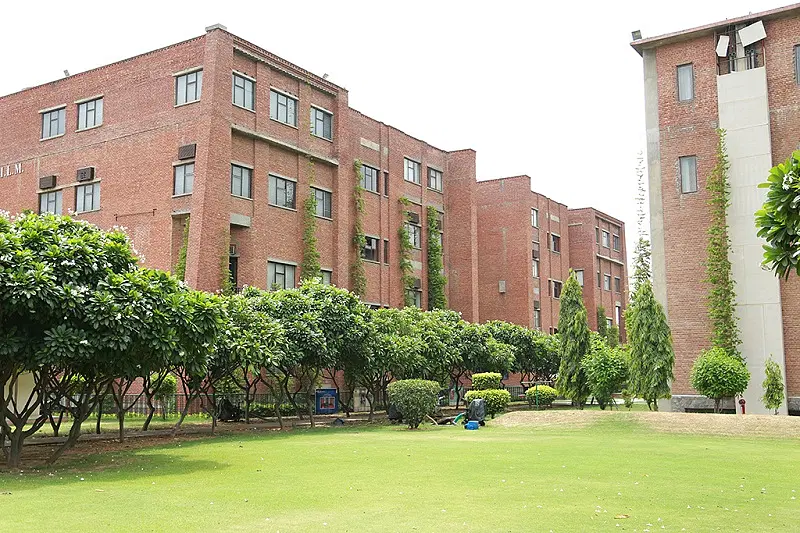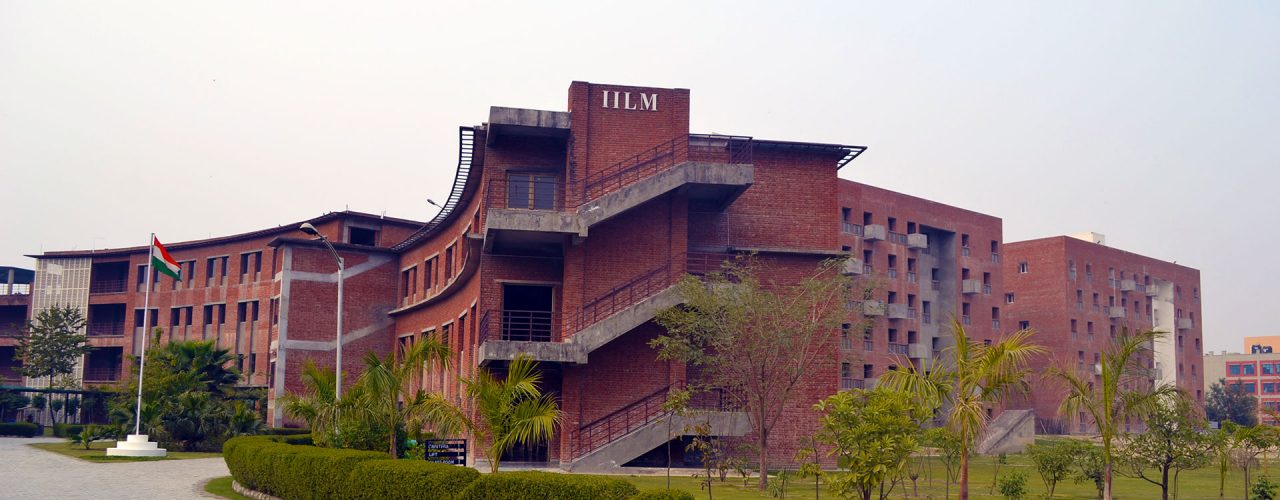Unleash Your Business Leadership Potential at IILM – India’s Top BBA College
Do you envision yourself as a pioneering business leader, steering organisations to new heights? At IILM, we empower ambitious minds to turn vision into reality through value-based education grounded in academic rigour and practical exposure.
With an unparalleled 27+ year track record in shaping successful business professionals, IILM University is internationally recognised as a Top BBA College in India, ranked among the nation’s premier management institutes. When you pursue your business degree at our world-class Lutyens’ Delhi campus, you become part of a rich legacy of excellence in developing future-ready leaders.
Our experiential pedagogy blends state-of-the-art simulations, live projects, and regular corporate visits to bridge theory with real-world application. From running realistic virtual companies to collaborating with leading brands on campaigns and strategic reports, we ensure you graduate with more than just academic expertise.
Specialised BBA Programs Designed for Industry
Demands
In response to evolving industry dynamics and employer expectations, IILM offers specialised BBA degrees beyond the traditional management focus:
BBA in Entrepreneurship
The entrepreneurship-focused BBA develops opportunity identification, business model creation, new venture planning, financing, and scaling up operations. Students get extensive instruction to build an entrepreneurial mentality for success.
BBA in International Management
This BBA is designed with industry experts and top MNCs to prepare people for international business careers. The programme helps students navigate worldwide marketplaces by managing diversity and comprehending foreign legislation.
BBA in Psychology/Communication
These innovative curricula combine management and behavioral sciences for strong blended learning. For more advanced leadership, students learn to utilize psychological and communication views in organizations.
Create a robust professional network to help you advance in your career, which is key to opening up opportunities for internships, jobs, mentorship, and more. Our BBA students actively engage with an expansive base of industry partners and IILM alumni occupying leadership positions across sectors.
Vibrant World-Class Campus in Delhi’s Coveted
Lutyens’ Zone

Strategically located in New Delhi’s eminent Lutyens borough, our institute is nestled amid heritage landmarks like India Gate and Lodhi Gardens that exemplify the capital’s old-world allure. Within this charismatic habitat, we host contemporary amenities:
- 35,000+ Volume Library with Global Magazines and Periodicals: Access the latest international business publications across diverse genres.
- State-of-the-Art Computer Lab: Harness cutting-edge analytic/design tools with 24/7 high-speed internet.
- Hygienic Cafeterias/Mess with Multi-Cuisine Options: Enjoy nutritious, delicious meals from various on-campus restaurants.
- Comfortable Separate Hostels for Girls and Boys: Our AC/Non-AC hostel rooms with single/double occupancy offer modern facilities plus round-the-clock security.
International Exposure Through Global Tie-ups
As a leading BBA college, IILM maintains exclusive associations with eminent global institutes, including the University of London, SBS Swiss Business School, and Monroe College USA. These partnerships open up worldwide opportunities for student exchanges, faculty collaborations, intercultural projects, bilateral conferences, and more.
Ambitious students can also access international transfer/degree options in tandem with overseas partners, attaining global credentials simultaneously while pursuing a full-time BBA in India through such agreements.
Robust Placements with Leading Indian &
Multinational Firms
IILM University has an exemplary track record of placements across a spectrum of prominent recruiters, such as:
- Consulting Biggies: KPMG, EY, PwC, Deloitte
- Banking Majors: ICICI Bank, HDFC Bank, Standard Chartered
- Tech Titans: IBM, JP Morgan, Accenture
- FMCG Giants: ITC, Godrej, Marico, Nestle, and P&G
- Energy/Petroleum Empires: ONGC, Reliance, Shell, BPCL
- Automotive Stars: Maruti Suzuki, Hyundai Motor
- Retail Champions: Shoppers Stop, Lifestyle, Pantaloons
Our extensive industry network opens up internship and job opportunities across diverse business domains, empowering students to realise their career aspirations.

Building Blocks of Success for a Prosperous BBA
Journey
As one of the best colleges for BBA, through a balanced framework encompassing academic excellence, practical learning, a global outlook, and a value-based perspective, IILM University’s BBA curriculum lays the optimal foundations for leadership. Some highlights include:
- Core Management Modules: Accounting, Finance, Marketing, HR, Operations, Economics, Business Statistics/Analytics
- Specialisations via Electives: Entrepreneurship, International Business, Retail Management, Rural Management, Business Analytics
- Interdisciplinary Perspectives: Psychology, Communications, Legal Aspects, Ethics
- Experiential Learning Tools: Simulations, Student-Driven Projects, Industrial Visits
- Holistic Development: Leadership, Public Speaking through Co-Curricular/Extra-Curricular Activities
Take the First Stride Toward a Fulfilling BBA
Trajectory
As one of the top BBA colleges in India pioneering cutting-edge management education, IILM opens up a world of opportunities to create impact as visionary business leaders. Our future-centric curriculum, hands-on industry exposure, global perspective, and stellar record in nurturing holistic business personalities set graduates up for excellence.
If you aspire to advance your field by steering organisations to unprecedented success, IILM is the perfect Launchpad to commence your business leadership journey. The future belongs to trailblazers and achievers. Realise your true potential and define the way forward for enterprises with India’s premier BBA institute supporting your goals!


























